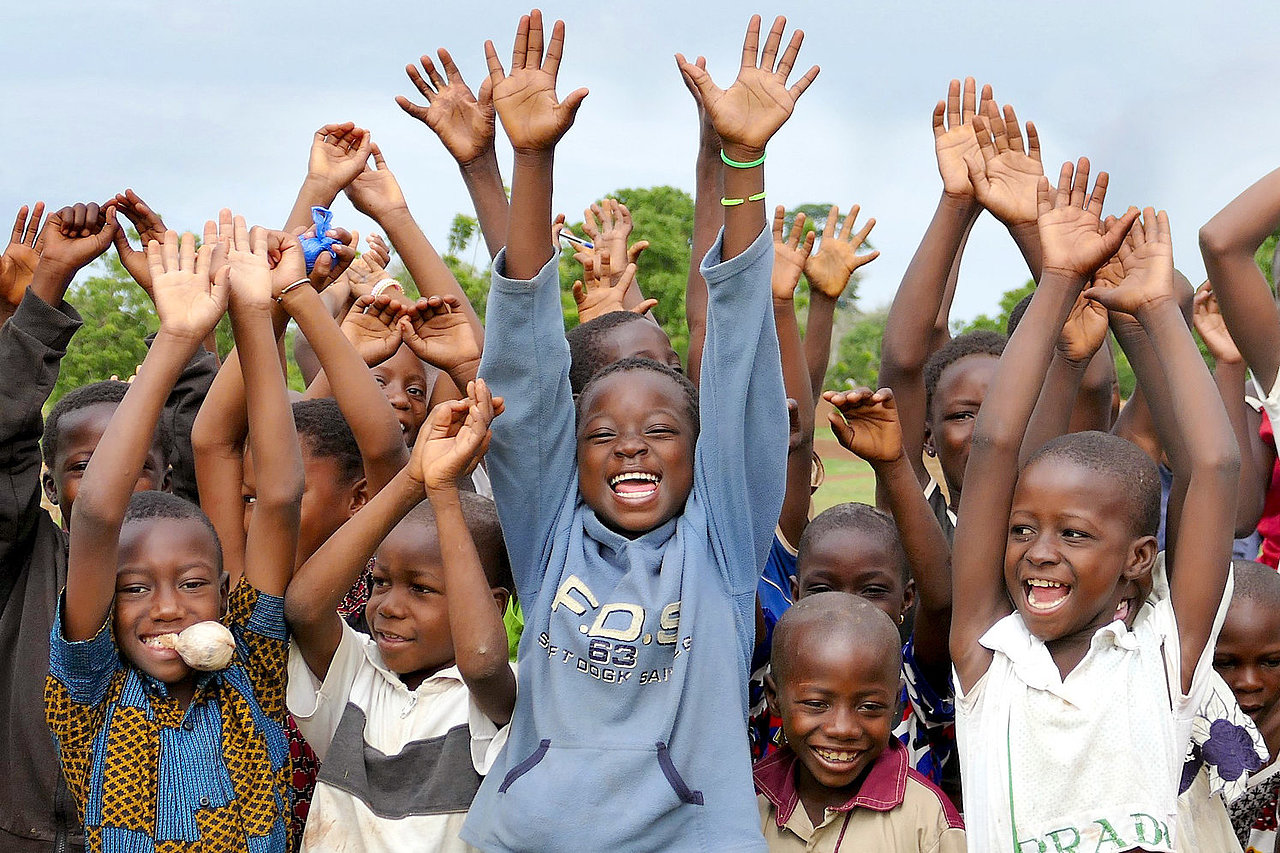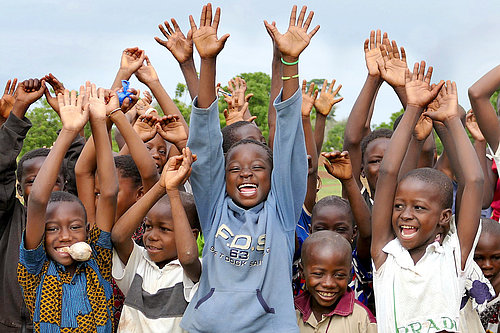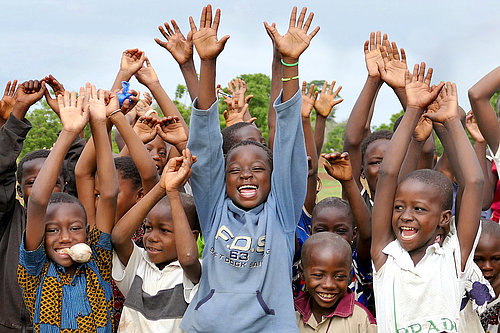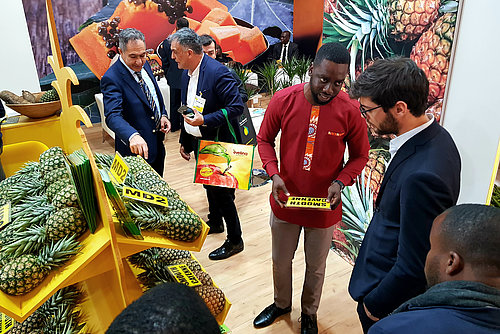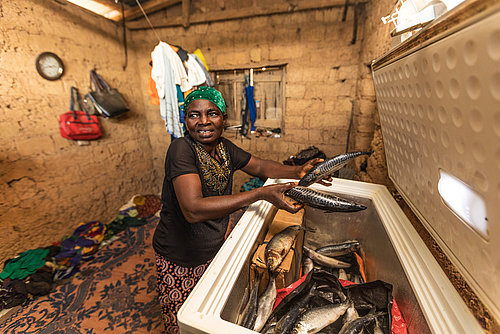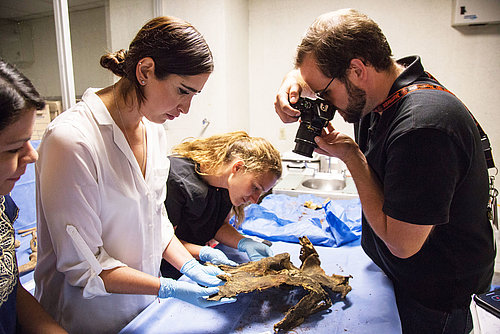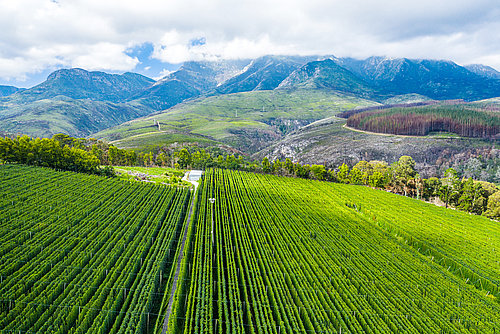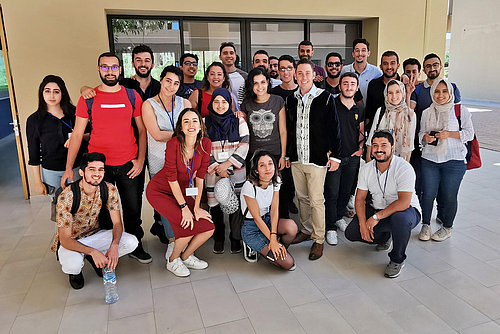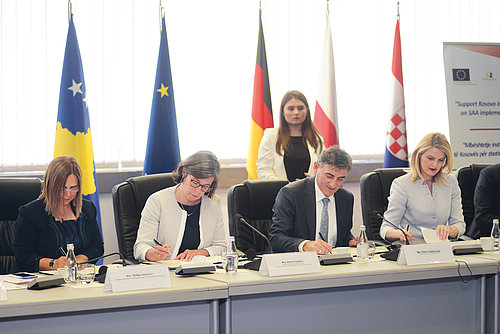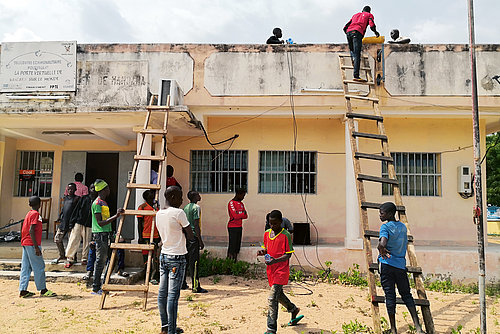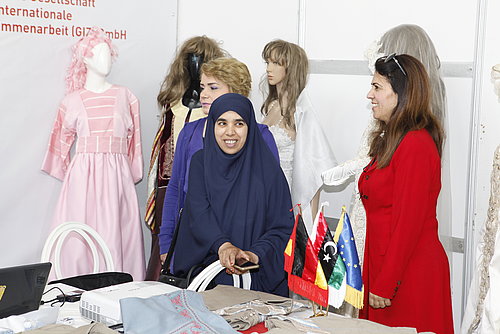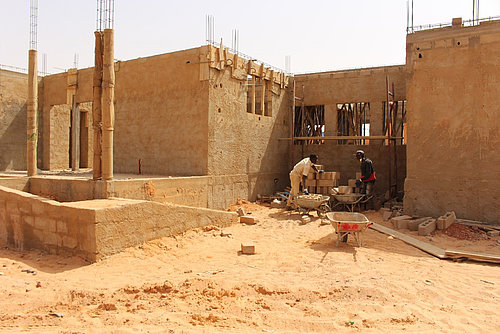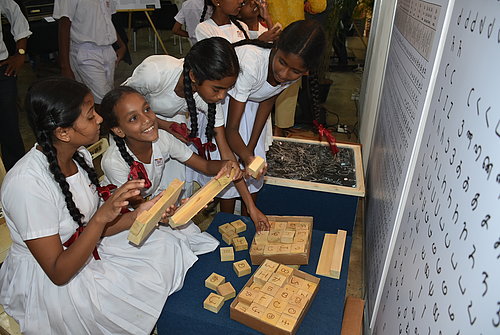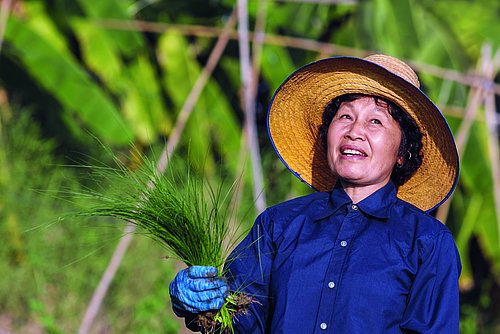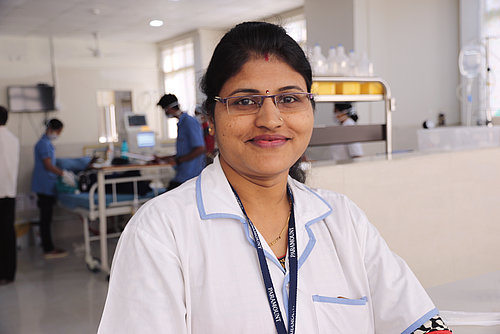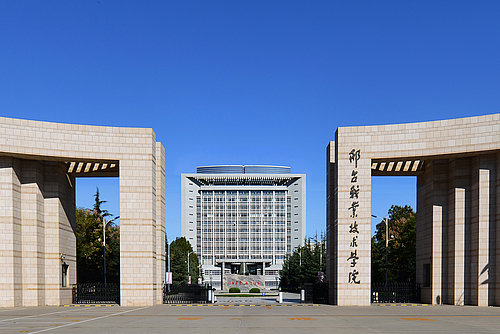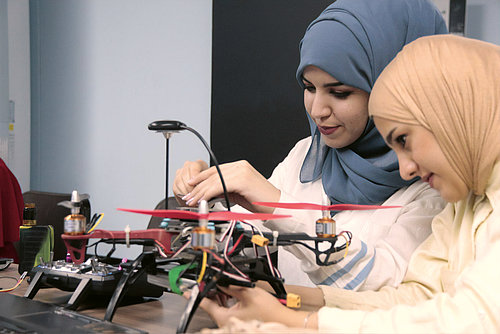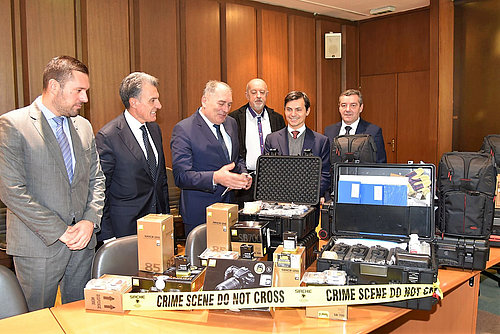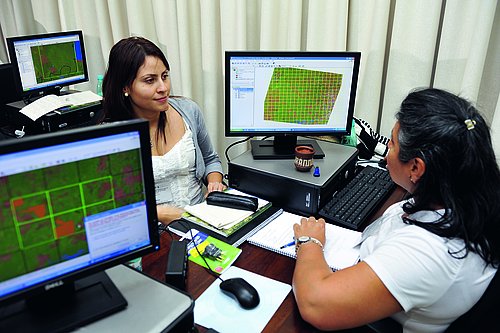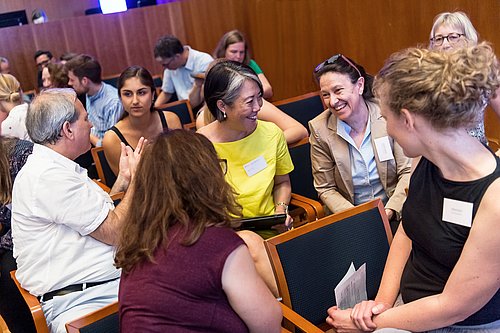On behalf of the German Government and other commissioning parties, we implement projects that are designed to improve the human rights situation on the ground. As part of our projects, we train public and civil society stakeholders on human rights standards and principles and support our partners in facilitating political, economic and social participation. Children’s rights are an integral part of GIZ’s human rights-based approach. Examples of our project work are presented below.
Agents of Change – Innovation for Children and Youth Rights competition
Global challenges can only be tackled in cooperation with children and young people, as they have innovative ideas that are valuable and important. Children and young people are key agents of development and innovation. Realising their rights to protection, support and participation is therefore an essential task for the world’s governments and a key concern of German development cooperation. The UN Convention on the Rights of the Child (UNCRC) serves as the central human rights framework for our project design and advisory work as part of our approach to children’s rights. In order to find new ways to improve our children’s rights approach in practice, the GIZ Sector Programme on Realising Human Rights Including Children and Youth Rights in Development Cooperation launched the Agents of Change – Innovation for Children and Youth Rights competition in 2018. Support was provided to a total of eight pilot projects in Asia, Africa and Latin America in 2019.
Here are two examples:
- In Lesotho, the Seanamarena project used peer learning, community dialogue and capacity development for duty-bearers to strengthen children’s and youth rights among shepherd boys, girls and young women. Many boys in Lesotho are subjected to child labour and extreme exploitation. Boys as young as 10 years old (and even as young as six in extreme cases) are forced to work as shepherds, sometimes for up to a year, without appropriate accommodation or adequate food, clothing or access to toilets and washing facilities, let alone education. Growing up in isolation in an environment dominated by traditional roles, many have limited access to concepts such as human rights and equal opportunities. Through the project, the shepherd boys learned how to advocate for their own interests and to understand the rights of women and girls. Masito, a 22-year-old herd boy from the village of Pharahlahle in Thaba-Tseka District, took part in the project and learned how to explain relevant information about topics such as HIV/AIDS to other young people. ‘I like spending time with my friends to find out about important issues relating to HIV/AIDS, to learn about how we can stop abusing women and girls, and to discover how important it is to stand up for our rights and those of women,’ he explained.
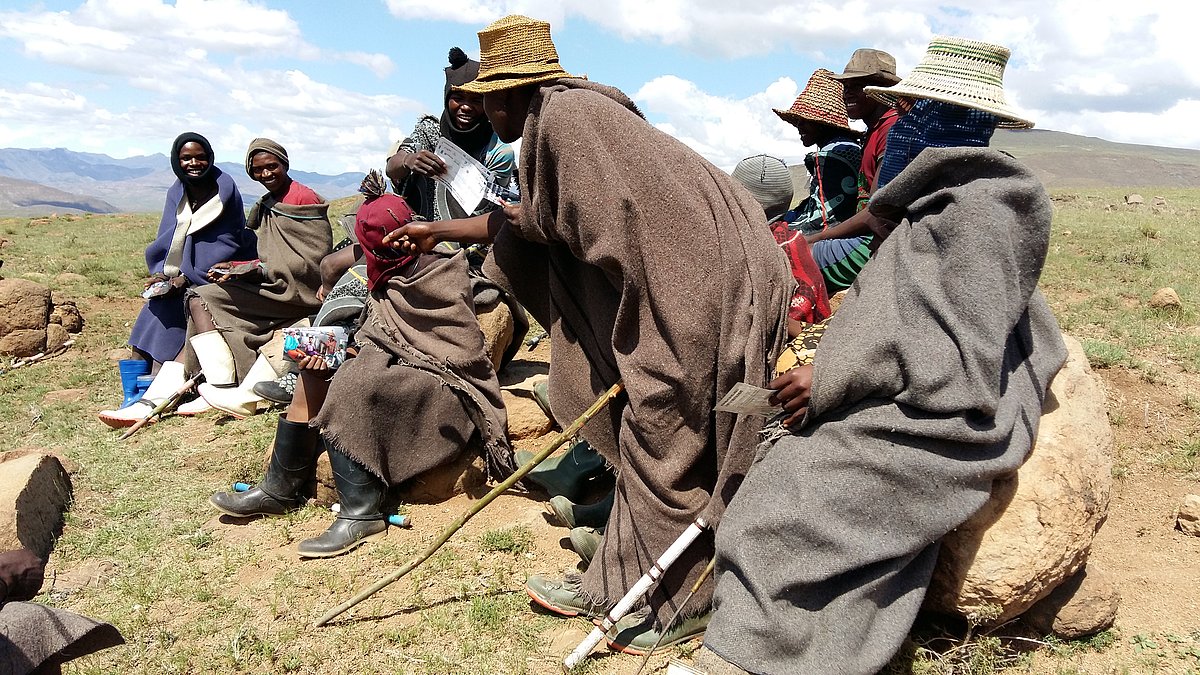
(© Help Lesotho)
- A total of 17 young people experiencing multiple discrimination took part in the Art of Being project in Lebanon, where they learned about the children’s rights approach and non-violent conflict management alongside videography, dance and clowning techniques. For some of the participants, this was the first time they had been part of a group in which they were able to speak openly about their personal challenges without having to put on an act to fit in with with social norms in Lebanon. They produced videos about the rights of children and young people and developed four social action projects in Beirut and the Beqaa Valley, using clown performances in particular to raise awareness about the rights of children and young people. ‘People are paying to watch such important and entertaining shows,’ remarked one of the village officials after a show in Bouday in the Beqaa Valley. In phase two of the project, young people will assume the role of mentors and co-moderators.
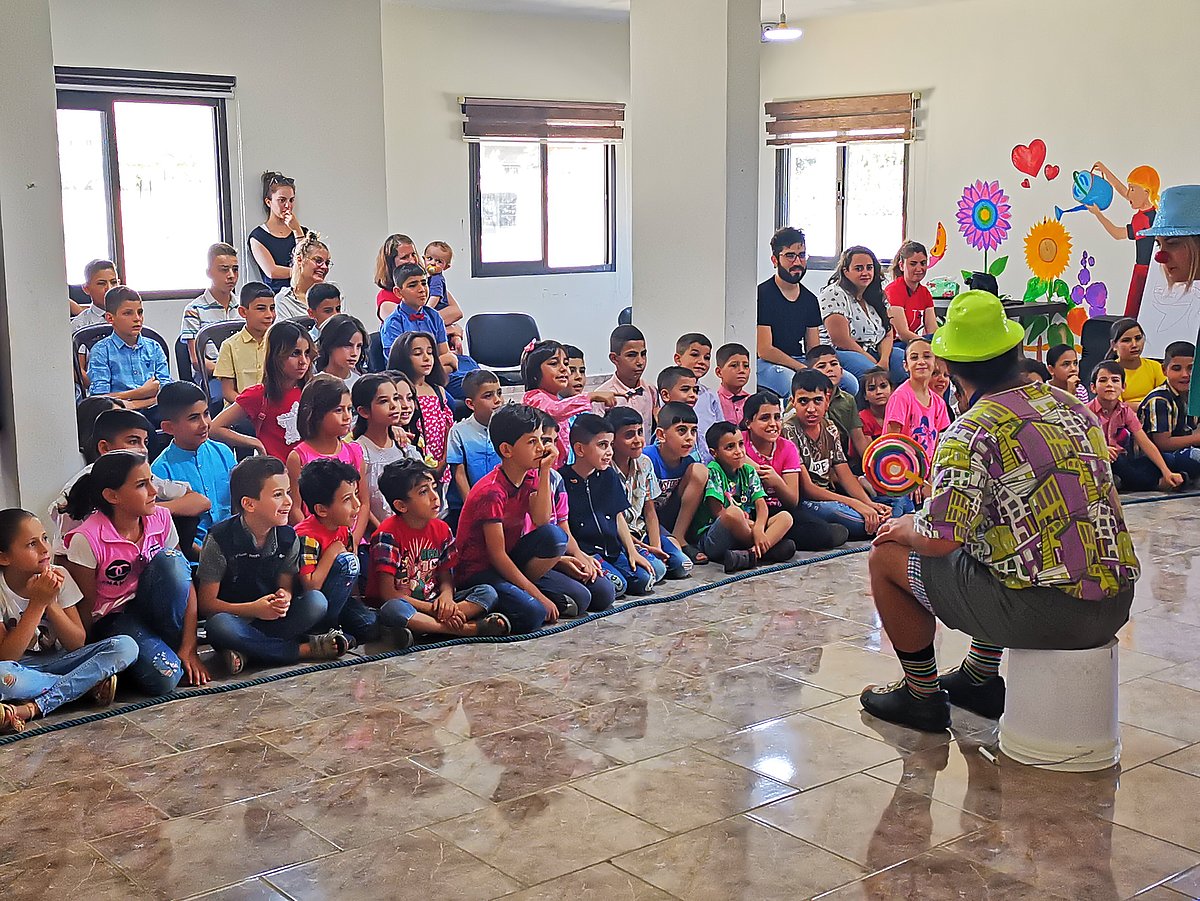
Promoting children’s rights in Burkina Faso
More than half of Burkina Faso’s population is under 18 years of age. The country has ratified the UNCRC and the African Charter on the Rights and Welfare of the Child. Nonetheless, children see their rights violated in a variety of ways. In order to earn a livelihood for themselves or their families, four in ten children in Burkina Faso have to work, which is usually harmful or even hazardous. Only one quarter of children attend school. Boys often fall prey to cross-border child trafficking and have to slave away in the agricultural sector of other countries for a pittance. Girls are forced to work as domestic employees in the households of other families. Over half of women currently aged between 20 and 24 years old were already married at 18, and ten per cent at 15. This is not without consequences for those affected and for society as a whole. The National Economic and Social Development Plan (Plan National de Développement Economique et Social – PNDES, 2016–2020) makes explicit mention of child labour, child trafficking and gender-based violence against children as obstacles to development.
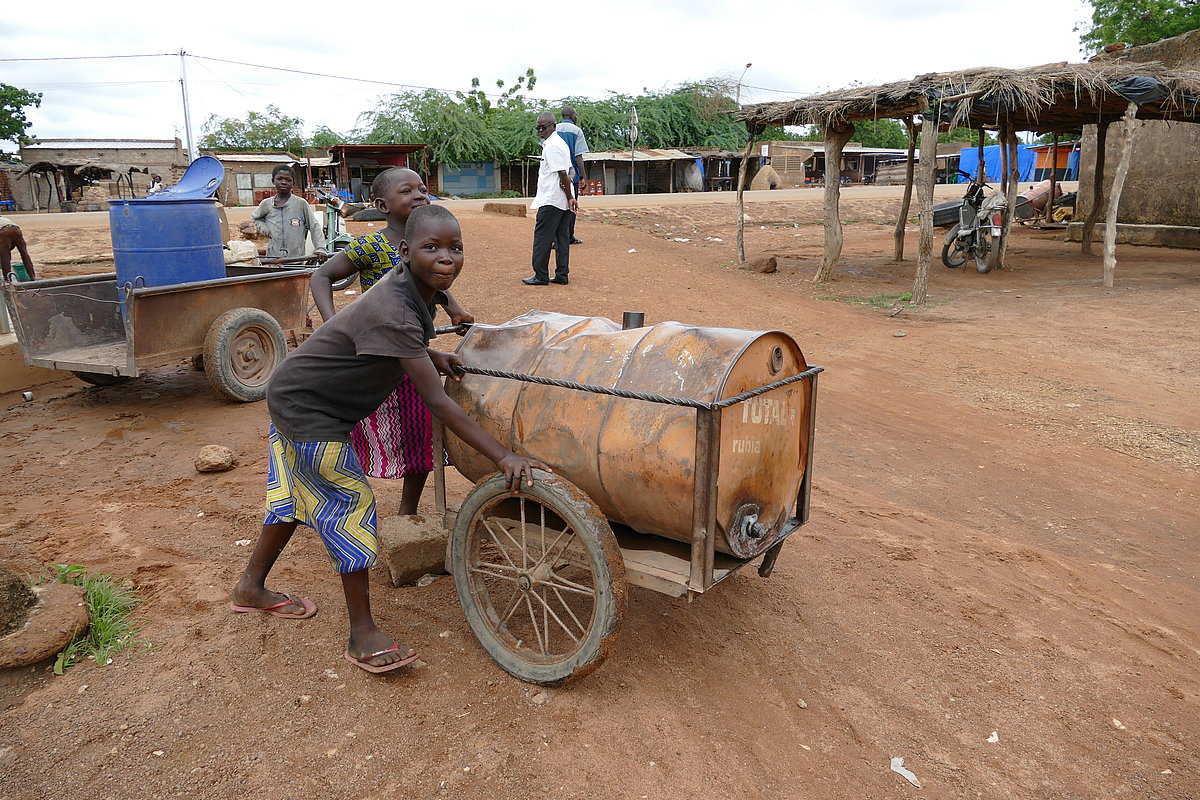
(© GIZ / N. Seiler)
With the PRO-Child: Implementing Child Rights in Burkina Faso project, GIZ aims to ensure that state and civil society players protect children more effectively, particularly against gender-specific violence, child trafficking and the worst forms of child labour. In the south-west and east of the country, the project is supporting the establishment of child protection networks, bringing together all stakeholders that could play a role in an emergency: the judiciary, health care and education institutions, social services, religious and traditional authorities, and media representatives. Children are actively involved as the main target group. When the child protection networks meet, for example, a member of the children’s parliament is always present. In addition, with assistance from the project, social workers, health professionals and members of the security forces attended training in psychosocial support in 2019. As a result, they are now better placed to address the needs of young victims of violence. Special radio programmes raise the population’s awareness of child trafficking, adolescent pregnancy and child labour and familiarise them with child protection measures. Not least as a result of this, the networks and authorities are now receiving more reports of child abuse. The project also supports the responsible authorities, in the first instance local authorities and social services, in carrying out their role more effectively and, in the long term, mobilising more resources for child protection.
Human rights are the top priority
GIZ Orientation on Human Rights
Our human rights expertise
Sustainability Programme 2016–2020
GRI standard 412-1; UNGC 1, 2; The Code 17
Insights into our projects in 2019
We are active in some 120 countries with 1,600 projects.
Discover the world of GIZ by learning about examples of projects undertaken in the 2019 reporting year.
We are active in some 120 countries with 1,600 projects.
Discover the world of GIZ by learning about examples of projects undertaken in the 2019 reporting year.
Are you interested in other GIZ projects?
